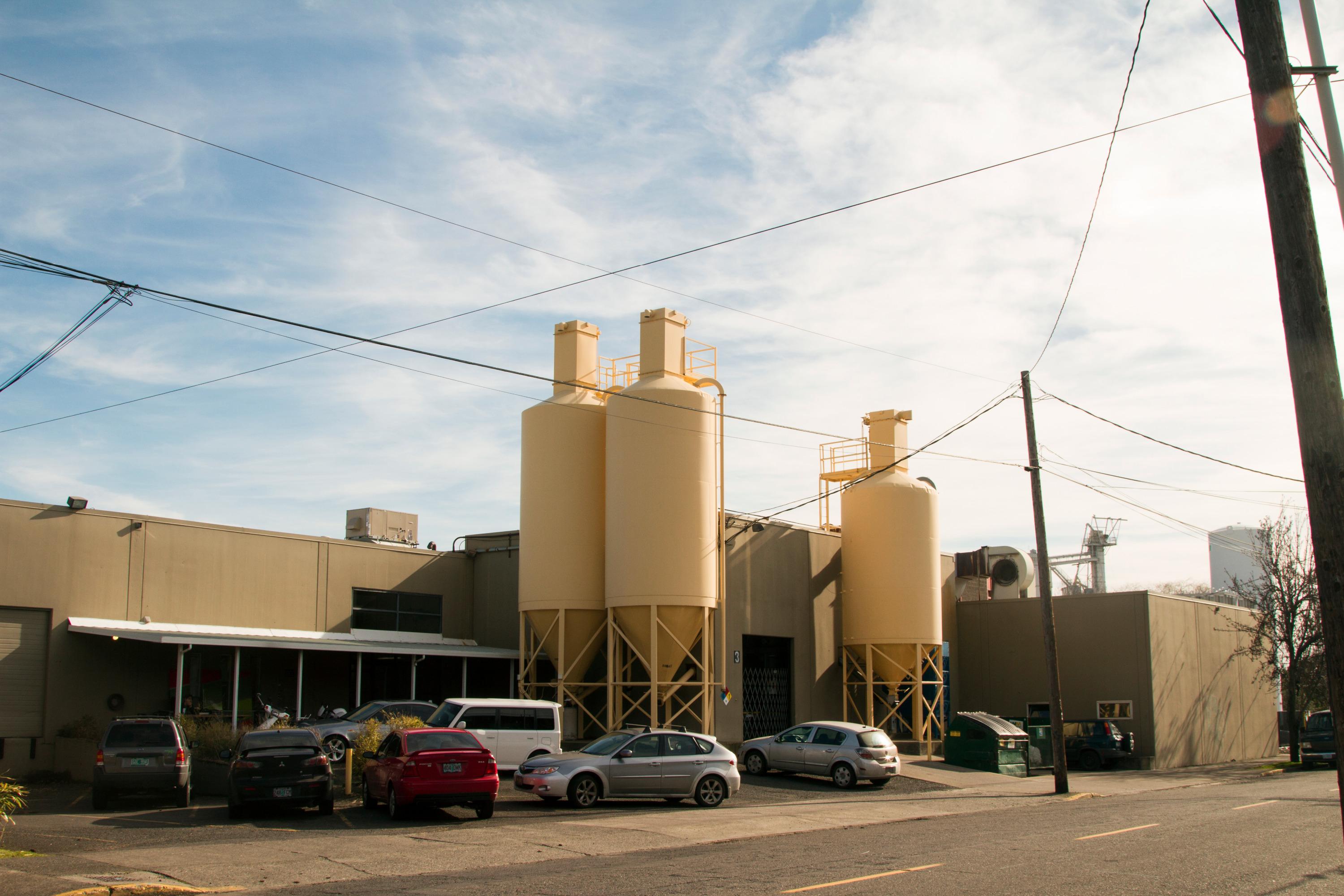
Bullseye Glass in Southeast Portland is one of two glass companies that has voluntarily stopped using cadmium in and arsenic in its manufacturing of colored glasses.
Bryan M. Vance / OPB
Oregon Gov. Kate Brown is calling on the Oregon Health Authority and Department of Environmental Quality to take immediate action, after concerns that glass companies are releasing heavy metals into North and Southeast Portland air.

Bullseye Glass in Southeast Portland is one of two glass companies that has voluntarily stopped using cadmium in and arsenic in its manufacturing of colored glasses.
Bryan M. Vance / OPB
In a statement Monday, Brown ordered DEQ to begin soil testing in the affected communities. Heavy metals have the potential to linger in soil and be an exposure point for people.
Earlier this month, DEQ and the U.S. Forest Service announced they had detected high levels of two heavy metals, arsenic and cadmium, in the air near glass factories in North and Southeast Portland. Officials announced concerns of a third heavy metal — chromium — in the air Friday near the factories, Bullseye Glass and Uroboros Glass.
Related: Health Officials Warn Of Third Heavy Metal In Portland Air
On Monday, Brown requested the Health Authority to make urine testing available to Portland residents, and to work with laboratories to analyze that data for further exposure analysis. She also called for a health information hotline to be created.
While the factories have voluntarily stopped using all three chemicals, Brown said more needs to be done.
"While I am relieved to know that specific steps have been taken to address the immediate risks to the public in terms of air quality, it is also important to take actions to address other potential routes of exposure to people in these communities," Brown said.
Brown called on DEQ and the Health Authority to make information available to the public in a quick manner, while also developing a longterm plan for providing accurate, up-to-date health information for the public. She also asked for the cooperation of the federal government and research institutes to the air pollution issue.
"Current federal and state regulatory programs are clearly inadequate to assure the public that their health is being protected," Brown said. "I have asked DEQ to inventory other facilities where there may be significant risks from air toxics emissions with localized or 'hot spot' effects."
Gov. Brown's statement echoes the sentiments of DEQ Director Dick Pederson, whose Feb. 15 letter argued the "unexpectedly high levels of metals in the air... shines new light on the problem of localized impacts of industrial emissions, or hot spots."
Pederson suggests Oregon look to its neighbors to the north and south.
"California and Washington, for example, have addressed this problem directly by establishing health or risk based standards for air toxics impacts from industrial facilities," Peterson wrote.
"Such action in Oregon will address a gap in current state and federal regulations."
